8 Newbie driving mistakes p-plate drivers make
8 Newbie driving mistakes p-plate drivers make
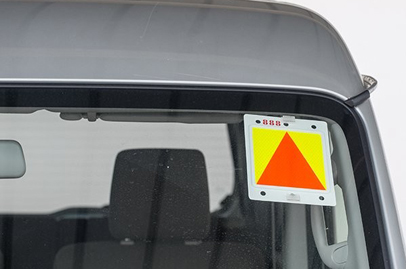
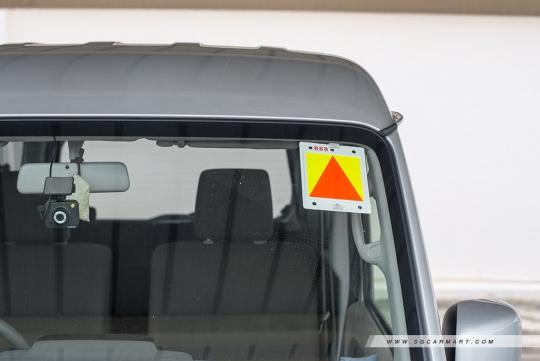 Your shiny new Class 3 (or Class 3A, we won't judge) driving licence just arrived in the mail, you're ready to tear up the tarmac and burn some rubber. Not so fast, Schumacher. Passing your Traffic Police test is only the beginning.
Your shiny new Class 3 (or Class 3A, we won't judge) driving licence just arrived in the mail, you're ready to tear up the tarmac and burn some rubber. Not so fast, Schumacher. Passing your Traffic Police test is only the beginning.
Clearing some obstacles in a circuit under the supervision of an instructor doesn't do much to prepare you for real world driving, which entails many unspoken rules of the road and requires a level of street savvy that only comes with experience.
That said, we've compiled some of the most common mistakes that newbie (and even some experienced) drivers make and how you can avoid them.
1. Flying through your windscreen isn't cool, staying alive is
Let's start with the obvious one, seat belts. Or more specifically, not putting them on. The bad habit of not buckling up is more common amongst younger, less experienced drivers who get the impression that seat belts are more of a hindrance than help.
Seat belts are designed to do one job, and that's to keep you from flying out of your car like a human cannonball. Why anyone would think that they are unnecessary is beyond us. If you think it's dorky or feel that it's uncomfortable to wear a seatbelt, just look up 'no seat belt accidents' on Google and you'll see why buckling up could mean the difference between life and death.
2. Signal lights aren't optional, they come standard in all cars
It's amazing how many drivers are unaware of a piece of technology that has the potential to prevent countless accidents and save thousands of lives every year. If we had a dollar for every time we've seen an abrupt lane change without signalling, we'd probably be members of the Three Comma Club by now.
But jokes aside, signalling lights are your one and only form of communication with other road users around you, especially when it's dark out. No one will have any clue which direction you intend to go unless you show them your intentions. It's extremely dangerous to change directions or lanes without warning, and, not to mention, really annoying.
3. Read between the lines and you'll be fine
Green is go, red is stop. Simple right? Not quite. Many drivers fail to anticipate the changing of lights and often end up jamming the brakes in order to avoid beating the red. Some even stop way past the stop line and try to reverse in order to avoid blocking traffic.
Although it may seem safer, stomping on the brakes when the lights turn amber drastically increases your chances of getting rear-ended and spinning out into the middle of the junction. The next time you approach a junction, look out for the pedestrian crossing lights in the same direction. If they turn red, it's a pretty good indicator that the green light for vehicles is about to go bye-bye.
Don't forget to watch your six as well. If the car behind you is too close, it's much safer to speed up and clear the junction instead of hitting the brakes and getting rear-ended. It may not be ideal but getting a 12-point demerit for beating a red light is always preferable to ending up in the ICU or getting someone else killed.
That said, if you're on the other side of the junction, don't be a kan chiong spider. It wouldn't hurt to wait a couple of seconds after the lights turn green before moving off. This way, you minimise your chances of getting T-boned by a driver trying to beat the red light.
4. Greasing the groove makes your driving smooth
We get it, parallel parking can spike your cortisol levels and cause heart palpitations, especially when the impatient driver behind you is breathing down your neck. You don't have to hold the world record for the tightest parallel parking but you should be able to do it without lowering your side mirrors every time. Practising during low-stress periods when there isn't too much traffic around will make it a lot easier to parallel park smoothly when the need arises.
Driving during off-peak hours is a great way to avoid ERP costs and the unnecessary stress that comes with being stuck in traffic. But that doesn't mean you should avoid the rush hour at all cost. On the contrary, exposing yourself to more 'difficult' driving situations such as traffic jams will improve your situational awareness and reaction time, increase your confidence behind the wheel, and just make you more of a badass driver all-round.
5. Being smart is fine, just don't be a smartass
Confidence is key to survival on the road. Too much of it, on the other hand, can be detrimental to yourself and your passengers. Trying to impress your date or your buddies by weaving in and out of traffic is probably not the best idea if you are unfamiliar with the way your vehicle handles. It also goes without saying that speeding, tailgating and brake checking are out of the question.
How much is too much when it comes to mixing alcohol with driving? Don't think that just because your blood-alcohol level is below the legal limit your judgement isn't affected. Even one glass of beer can have significant effects on reaction time. As cliche as it may sound, if you don't drive to drink, you'll never drink and drive.
Just as dangerous is leaving one hand on the wheel while texting, or scrolling through your social media feed, with the other. No one is that good of a multi-tasker. Every second spent on your phone is a second spent not paying attention to the road.
It doesn't hurt to be confident but when that turns into overconfidence, a bruised ego will be the least of your worries. Just remember, if you don't look for trouble, trouble won't find you.
6. Keep calm and carry on
Expressways can be intimidating for new drivers. But slow driving doesn't equate to safe driving. Road hogging may cause other road users to lose patience and overtake recklessly, which puts others at risk of an accident. If someone is tailgating you on the first lane and/or has their right turn signal on, they are probably signalling their intention to overtake you.
If you miss your exit, don't panic and cut across multiple lanes. Take your time and filter out gradually, the next exit won't be that far off. It helps to know where you're going and how you're going to get there before you even step into the car.
Another point to note is that a vehicle speeding past you on the next lane will not collide with yours. Some drivers assume that a crash is imminent and tend to swerve out of their own lanes in order to avoid a crash. But this will only scare the living hell out of the driver on the other lane and may cause them to swerve as well.
Single-lane two-way roads are designed to accommodate traffic traveling in both directions. Although oncoming traffic may seem uncomfortably close, there is plenty of space to work with and you don't have to brake constantly to avoid a fender bender.
This applies to acceleration as well. Constantly flooring the gas pedal won't make your vehicle go that much faster as it takes time for it to overcome inertia and pick up speed. The only thing it'll do is waste more petrol and make your ride unnecessarily uncomfortable. You're better off feathering the throttle and brake pedal the same way you would play footsie with your love interest.
7. Don't lose sight of the finish line, keep your head in the game
Getting angsty over a road bully egging you on is one of the worst things you can do, especially if you're new to driving and are unfamiliar with your vehicle.
There are drivers out there who are actively looking to challenge and pick on others in order to feed their egos and show off their overcompensated exhaust pipes. Don't fall prey to these guys, your best bet is to let them pass and be on your way.
Other emotional triggers such as an argument with your spouse, your boss hounding you for deadlines and stressing over financial matters will also detract from your ability to control your vehicle. Try hitting the road when traffic is light and you'll find that although stressful at times, driving can be good for the soul.
8. Ignorance is not bliss, the devil is in the detail
You've been told to check your blindspot more times than you'd care to admit but there's a reason why it's called a 'blind' spot. It's where other vehicles disappear from your radar, a vehicular Bermuda Triangle, if you will. We promise you won't get a whiplash by turning your head before making a turn or a lane change. It takes less than a second and could save that inconspicuous motorcyclist a trip to the hospital.
Also, have you ever unwillingly gotten fixated on the very thing you were trying to avoid and still ended up hitting it? It could be a curb, pothole or even another vehicle. This phenomenon is called target fixation, which happens more commonly in motorcyclists but also affects drivers to some degree.
Don't look directly at the object you're trying to avoid. Instead, you should look for a way out and focus on where you want to go. For example, when taking on a bend, don't look directly at the apex or what's in front of you. Look as far ahead, into the corner, as you can so you know what to expect.
It's not just about driving, though. Your vehicle is a complex machine and, just like people, requires tender loving care. You don't have to keep it in showroom condition all the time but ignoring unusual brake noises, not checking on your oil and coolant levels, and forgetting to pump your tyres are a one-way ticket to the scrapyard. A good time to perform these checks is while you wait for your tank to be filled up at a petrol station. Take care of your vehicle and your vehicle will take care of you.
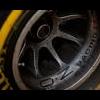
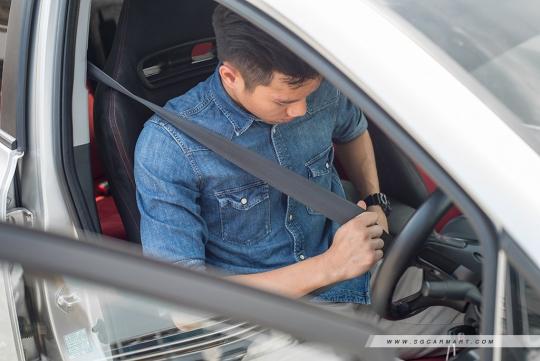
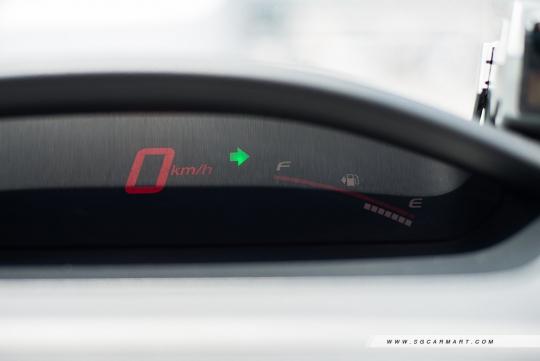




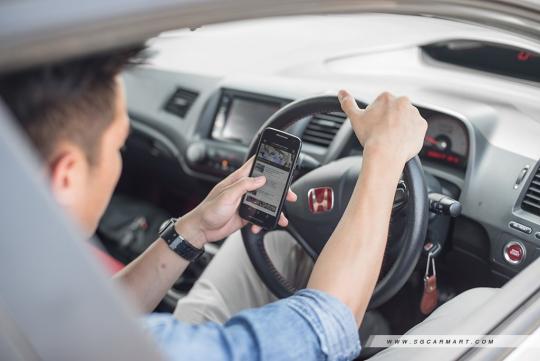

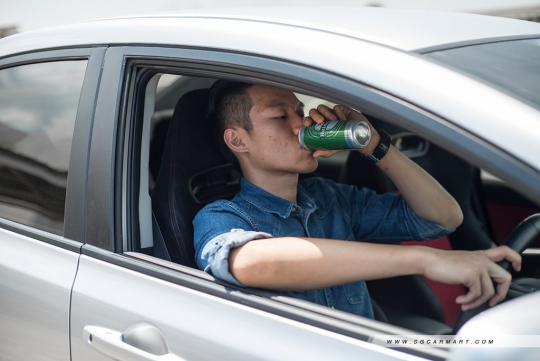
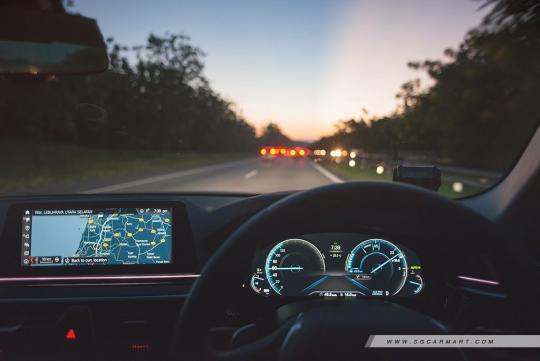
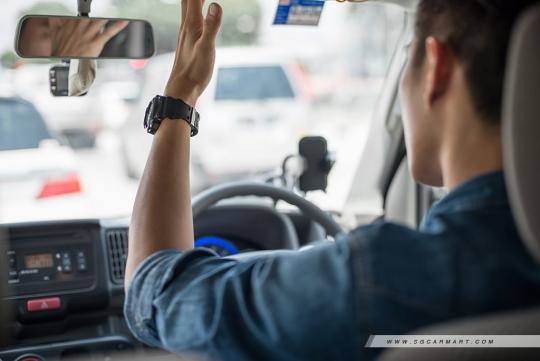



0 Comments
Recommended Comments
There are no comments to display.
Create an account or sign in to comment
You need to be a member in order to leave a comment
Create an account
Sign up for a new account in our community. It's easy!
Register a new accountSign in
Already have an account? Sign in here.
Sign In Now